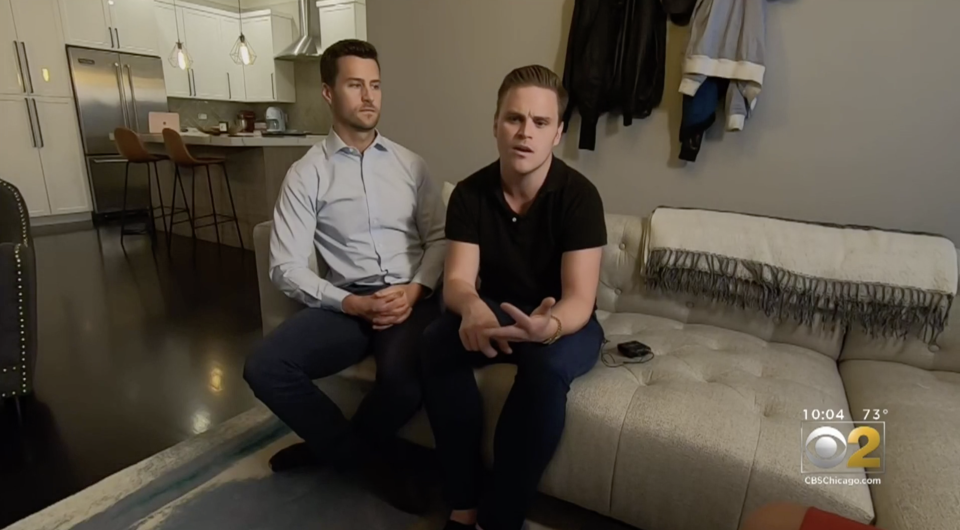Gay ER doctor who survived COVID-19 says he can't donate plasma because he’s sexually active: 'We’re sitting on something that could be saving lives'
After Dr. Dillon Barron, an emergency medicine physician at Amita Health St. Francis Hospital in Evanston, Ill., and his partner Eric Seelbach fully recovered from COVID-19, they wanted to donate their plasma, which contains antibodies that may help other patients with immunity. But Barron and Seelbach say they were denied because they’re a sexually-active gay couple.
“I really felt passionate about doing something, wanting to be in control and feel like I was helping people,” Barron told CBS Chicago. “We’re sitting on something that could be saving lives.” Barron and Seelbach did not respond to Yahoo Life’s request for comment.

Controversial restrictions preventing sexually-active gay and bisexual men from donating blood have been in place since 1983, when the Food and Drug Administration (FDA) first banned any man who has ever had sex with another man from donating blood, amid the growing HIV/AIDS epidemic. In 2015, the restrictions were revised to allow gay and bisexual men to donate blood as long as they hadn’t been sexually active in the previous 12 months.
The Human Rights Campaign called the requirement “antiquated” in an April 2020 press release and urged the FDA to change its policy. In light of the urgent need for blood and plasma brought on by a donation shortage during the coronavirus pandemic, the agency eased restrictions from a 12-month deferral to a 3-month one last April.
In a statement provided to Yahoo Life, the American Red Cross says that “like all blood collectors in the U.S.,” they are “required to follow the eligibility guidelines issued by FDA.” However, the organization added: “It’s important to emphasize that the Red Cross believes blood donation eligibility should not be determined by methods that are based on sexual orientation. We are committed to working toward achieving this goal, and are encouraged by the FDA eligibility change which we view as a scientifically based interim step to achieving our greater goal.”
In the meantime, organizations, including the Human Rights Campaign (HRC) and GLAAD, have been fighting against the restrictions, saying they’re not scientific.
“When it was put into place in 1983, it was argued that this discriminatory ban was based on the public health field’s limited knowledge of risk," HRC president Alphonso David tells Yahoo Life. "...The [revised restrictions] are still blatantly discriminatory and focused on identity, rather than risk factors, which is why we have advocated for it to be repealed.”
Some members of congress agree. Most recently, House Resolution 989, which was proposed by California representative Adam Schiff on June 1, asks for the 3-month deferral policy for gay and bisexual men to be lifted, calling it “overly stringent given the scientific evidence, advanced testing methods, and the safety and quality control measures in place within the different FDA-qualified blood donating centers.”
The resolution noted that removing the ban “could result in as many as 4,200,000 newly eligible male donors, of which 360,600 would likely donate and generate 615,300 additional pints of blood.”
Adds David, "As the global pandemic wears on, the integrity and safety of the blood supply in this country must be preserved, strengthened and maintained. Continuing to enforce the de facto prohibition on blood donation by sexually active gay and bisexual men is not science, but rather bias and fear. We will continue to push for this policy to be changed.”

For the latest coronavirus news and updates, follow along at https://news.yahoo.com/coronavirus. According to experts, people over 60 and those who are immunocompromised continue to be the most at risk. If you have questions, please reference the CDC’s and WHO’s resource guides.
Read more from Yahoo Life:
Why you might see a ‘COVID-19’ fee on your next restaurant or hair salon bill
Want daily wellness, lifestyle and parenting news delivered to your inbox? Sign up here for Yahoo Life’s newsletter.
